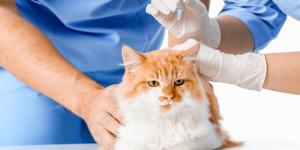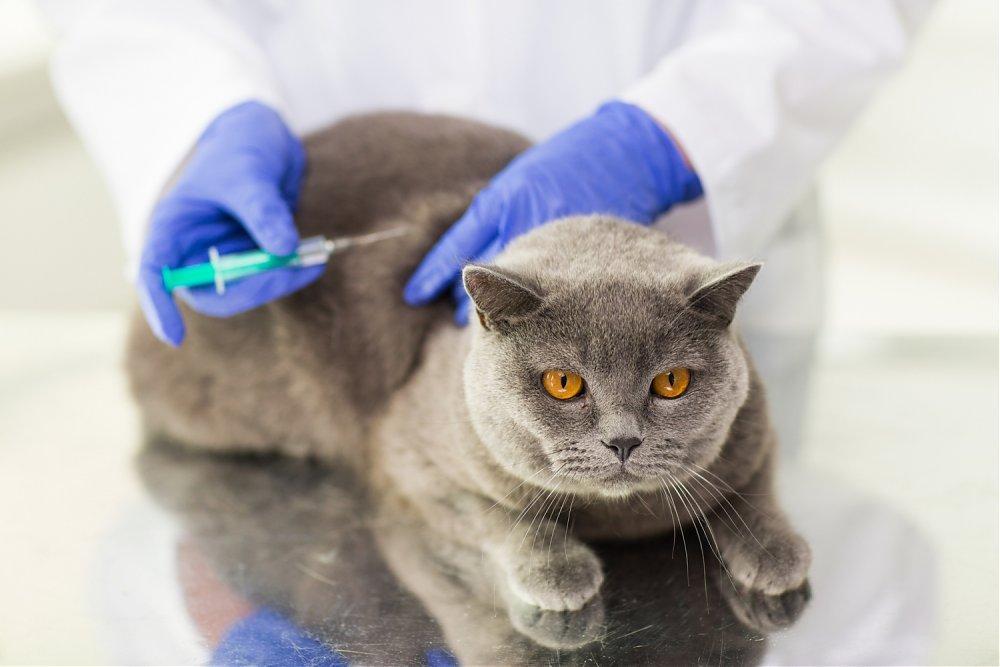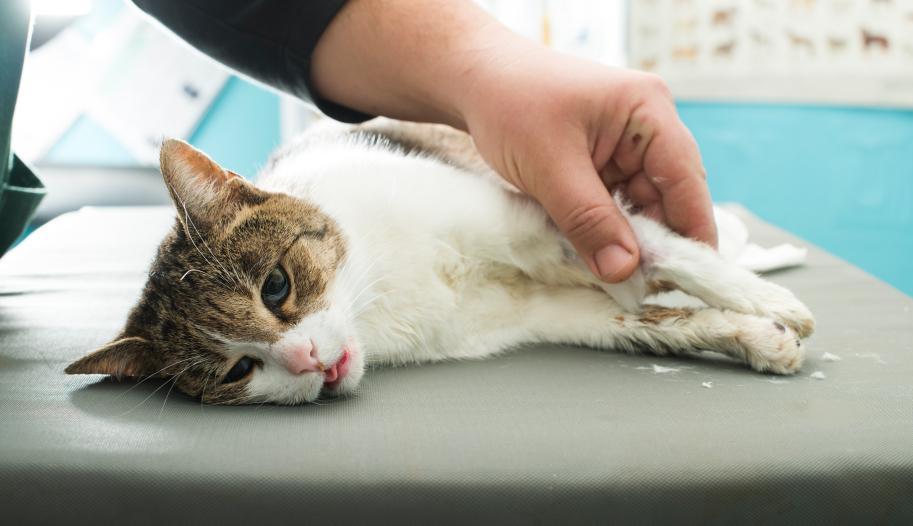Side Effects Of Vaccines In Cats

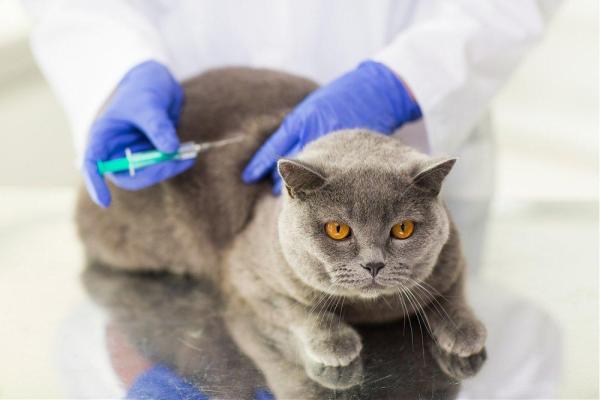

See files for Cats
Following a vaccination schedule for cats is incredibly important and necessary in terms of the health and safety of the animal. Vaccines keep an animal safe from serious diseases, specifically for animals that travel or live in groups.
However, as with most drugs, vaccines can present a series of adverse effects or unexpected reactions that should be recognized. Though, The beneficial effects do remain much greater than any possibility of damage. In order to minimize possible adverse effects, you must always comply with your cat's vaccination schedule. In addition, always consult your veterinarian and follow the appropriate safety measures recommended by a professional.
In this AnimalWised article we will be detailing the possible side effects of vaccines in cats. We will be categorizing these side effects into two categories: mild and serious reactions.
1. Vaccine reactions in cats (mild)
These reactions are the most frequent and are characterized by having a favorable prognosis. Meaning that they are those that usually disappear by themselves and do not usually require any treatment. These reactions usually appear a few hours or a few days after the vaccination and can last from a few days to a few weeks. These reactions are you activated by an immune system or inflammatory response.
Common mild reactions of vaccines in cats include;
Inflammation at the point of inoculation
This usually appears as a a small painful nodule in the area where the vaccine has been administered and usually disappears spontaneously between 2 and 5 weeks post-vaccination. They are usually associated with the adjuvants, proteins or stabilizers that the vaccine contains. We can relieve this area and help the inflammation disappear at a faster rate, by applying moist heat and massaging the targeted area.
This cat vaccine reaction is not considered a very serious case, it simply causes mild discomfort for the animal. If, however, it is complicated by necrosis, fibrosis and / or the appearance of an abscess, we recommend consulting a veterinarian as soon as possible. In addition, if you observe that the nodule does not decrease with time, or if in fact increases in size or changes its appearance, again we suggest consulting your vet. Your vet will most likely perform a puncture, in order to rule out; granulomas (due to chronic inflammation), abscesses (secondary infection) or even the appearance of a malignant tumor called fibrosarcoma.
Fever
Fever in cats can appear, as we have already mentioned, by the activation of a cat's immune response and, unless it is compromising a cat's quality of life, it is not necessary to treat it. After a vaccine, we do not advise exercising your cat too much. Cats need a couple of days after being vaccinated to rest and recover comfortably. By making sure that your cat has an opportunity to recover, you can also ensure they do not suffer from any side effects.
Lethargy and anorexia
Lethargy or anorexia in cats, as a vaccination side-effect, usually appears as a consequence of fever. Once again, we suggest giving your cat a chance to rest, not forcing it to eat if it doesn't want to. In these cases, you can offer your cat moistened or tempered food in order to avoid dehydration or any further complication. If more than 24 hours has past and your cat still hasn't eaten, then we advise that you consult your veterinarian.
Vomiting and/or diarrhea
Vomiting or diarrhea in cats is another on of the systemic signs related to the response of an animal's immune system. In general, these are both considered mild side-effects. However, as we will later see, these side-effects can occur acutely prior to possibly developing into a more serious reaction. Therefore, if you observe any of these digestive symptoms in your cat, a veterinarian will be able to advise you on whether treatment is necessary.
Regional lymphadenopathy
Regional lymphadenopathy in cats is part of the normal response by the immune system, after a cat has been vaccinated. If you give it a few days, the lymph node should return to normal size.
Sneezing
Sneezing can occur in the case of vaccines that are inoculated intranasally (vaccine against P.I.F) and usually last a few minutes or at most several hours. They can be accompanied by sniffing and rubbing of the snout against surfaces.
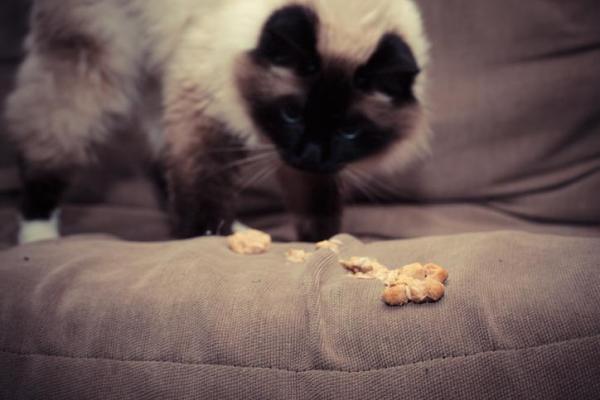
2. Allergic reaction to vaccines in cats (serious)
In this case, these allergic reactions of vaccines in cats are very rare. They can appear in minutes following the vaccination to the following weeks. The main serious reactions to vaccines for cats include:
Hypersensitivity reaction
These are exaggerated reactions by the immune system against substances that would normally be considered harmless under normal conditions. The most common hypersensitive reaction after a vaccination is known as; type I or strongly allergic, these effects are normally immediate (between 30 minutes and 2-3 hours after vaccine administration). The immune system can be triggered as a reaction to any component of the vaccine.
The symptoms associated with this type of hypersensitivity are caused by a high release of histamine, an inflammatory mediator, which increases vascular permeability and causes contractions in the smooth of the muscles. When this type of reaction occurs, you will be able to observe:
- An appearance of wheals or reddening of the skin (erythema and urticaria).
- (or) An inflammation of the face and neck due to the appearance of facial and periorbital edema (angioedema).
- Respiratory symptoms due to inflammation of the respiratory tract (which can become obstructed).
- In the worst case, anaphylactic shock, which can lead to respiratory failure and fulminating vascular collapse.
Prior to these however, there may be signs of: anaphylaxis, acute vomiting and diarrhea, hemorrhagic, followed by extreme lethargy, hypovolemia and respiratory and vascular failure. If you observe any of these symptoms in your cat, you must got to the veterinarian and start treatment urgently!
Fibrosarcoma at the point of inoculation
The appearance of this tumor has been related to some components of vaccines and other injectable drugs, and usually appears months or even years after the vaccination. Older animals are most susceptible to suffering from this. Although it is very rare and does not tend to metastasize, it is a very aggressive local malignant tumor, which requires an extirpation with wide surgical margins. In addition, this tumor has a high tendency of recurring, therefore in the long term it usually has a poor prognosis.
Since it usually appears at the point of inoculation, it is recommended to treat this point and prioritize areas such as the limbs or tail. Treatment is decided according to the evolution of the tumor, there are treatment cases in which surgical treatment is combined with the chemotherapy.
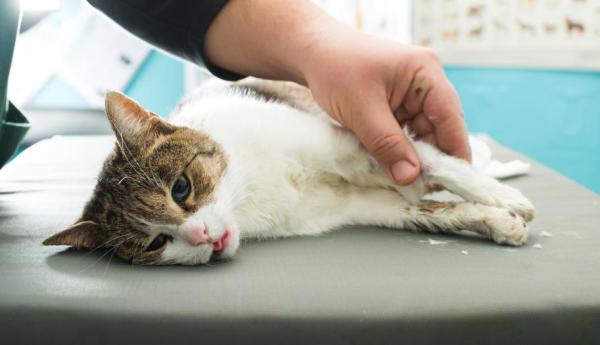
This article is purely informative. AnimalWised does not have the authority to prescribe any veterinary treatment or create a diagnosis. We invite you to take your pet to the veterinarian if they are suffering from any condition or pain.
If you want to read similar articles to Side Effects Of Vaccines In Cats, we recommend you visit our Vaccination category.


